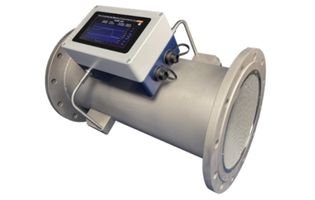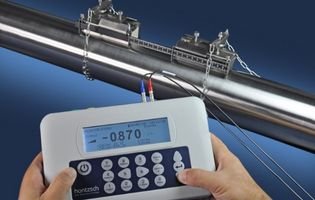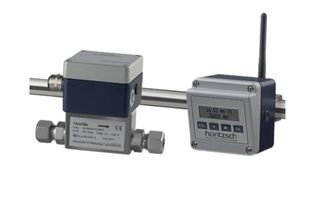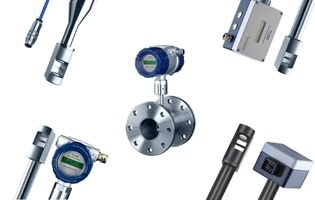About hoentzsch Flow Measuring Technology
Hoentzsch Flow Measuring Technology since 1976 we have been designing, producing, and distributing innovative products in flow measuring technology. Their focus is on compliance with quality standards and precision measuring techniques, aiming to solve your problems efficiently and cost-effectively.
Certificates, accreditations, and standards such as ATEX, SIL, DGRL, CSA (all measuring instruments with Ex-d housing), BImSchV, ISO 9001, DAkkS, and DKD membership are proof of this. Click here for more details about our calibration laboratory.
Manufactured from high-quality materials such as aluminum, stainless steel, Hastelloy, titanium, and tantalum, our flow sensors have high life expectancy even under the most adverse operating conditions. Especially in applications with extreme demands, our sensors demonstrate their outstanding strength, for instance in explosive atmospheres, in aggressive mediums, gases with temperatures up to 550 °C, at high flow velocities up to 200 m/s, or in pipe flows with changing gas compositions or direction of flow.
When others have reached their limits, we rise to the challenge! Flow measuring technology for specialized tasks is their vocation, whether at high pressures up to 50 bar, at low flow velocities and marginal flow rates, or in gases with ammonia, butadiene, hydrogen, and many others. hoentzsch also supply flow sensors specially designed for specific applications with heavy contamination and high dust content.
The Products of hoentzsch Flow Measuring Technology
Höntzsch flow rate measuring instruments and flow meters in use worldwide are our guarantee for increased process liability and plant safety. International customer satisfaction and confidence in our wide range of flow sensors is perfect proof.
ExactSonic P – Ultrasonic flow measurement ExactSonic P for test bench applications
Measuring tube diameters 50, 80, 100, 150, 200, 250, and 300 mm (other diameters on request). With temperature and pressure, the transducer calculates the standard volume or mass flow rate from the operating volume flow rate. The transducer is integrated into the connector housing and has a touch display, via which the measured values can be displayed directly and the device can be parameterized. In parallel, both can be remote controlled via the AK protocol from the control room/computer.
Tube design with cone/intermediate flanges, tube connection by clamping rings, or clamping chains. For large pipe diameters usually with process connection via flanges acc. DIN EN 1092-1, form B1, and with additional eyelets for crane transport. The connection option of plain pipe ends is also available.

All versions are additionally equipped with feet that allow safe parking on a flat surface. A storage and transport case is also available on request. The principle of measurement is also called the ultrasonic transit time difference method. Ultrasonic pulses are sent alternately through the medium in and against the direction of flow with this measuring principle for flow measurement of gases. The sensors operate alternately as transmitters and receivers during use. The transit time of the sound signals passing through the medium in the flow direction is shorter than the transit time of the signals against the flow direction. The transit time difference ?t is calculated on the path traversed by the sound and allows the mean flow velocity of gases to be determined.
Ultrasonic UA – ExactSonic III – Portable ultrasonic flow meter for liquids
This principle of measurement is also referred to as the transit time difference method. For measuring the flow rate of liquids using this technique, ultrasonic pulses are sent and received simultaneously through the medium in the direction of flow and against it. The sensors work alternately as transmitter and receiver. The transit time of the acoustic signals filtered through the medium in the direction of flow is shorter than that against it. The difference in transit time ?t is measured and can be used to calculate the average flow velocity of liquids filtering through the acoustic path. After measuring the flow velocity and with the pipe cross-sectional area, volumetric flow can be calculated.
The Ultrasonic Flow Measuring Method Provides Many Advantages
These ultrasonic flowmeters have many benefits, for example, the measuring instruments produce accurate results in just a matter of minutes, they are easy to install and operate, there is no process interruption and there are no pipe restrictions. As a result, there is no pressure loss and therefore, time and cost savings as the ultrasonic flow meter is easy to install on the pipe.

Thermal TA
Fixed and portable measurement of consumption quantity in compressed air and other clean gases; Measurement of laminar flow in clean rooms, under fan-filter-units; flow measurement in production facilities of the pharma-; food-processing- and semiconductor industry as well as flow-monitoring in glove boxes, isolators or sedimentation rate measurements in spray booths. Measurement of burner air and leakage flow; Monitoring of safety-relevant facilities – in aerospace as well as boats and ships.

Vortex VA
Flow rate and flow velocity measurement in wet and/or particulate-laden gases, biogas, or exhaust gas, also according to Clean Air Guidelines, (TA Luft). Flow rate measurement of sludge aeration air, sewage gas, landfill gas, water vapor, and engine intake air on test stations. Flow velocity in climatic wind tunnels, diluted car exhaust gas, traffic tunnels, and in nuclear reactor technology.

Source : www.hoentzsch.com
Read More Articles :
- Dwyer OMA Oxygen Flowmeter
- GKM Helix 4000 Woltmann Cold Water Meter
- McCROMETER McMag 2000 Electromagnetic Flow Meter
- Sierra 620S FastFlo Insertion Thermal Mass Air Flow Sensor
- Dinel CLM–70 Capacitive Level Meter
- Honsberg Measuring and Monitoring
- KEP Meter ST1-SUM-FC Rate/Total Flow Computer






